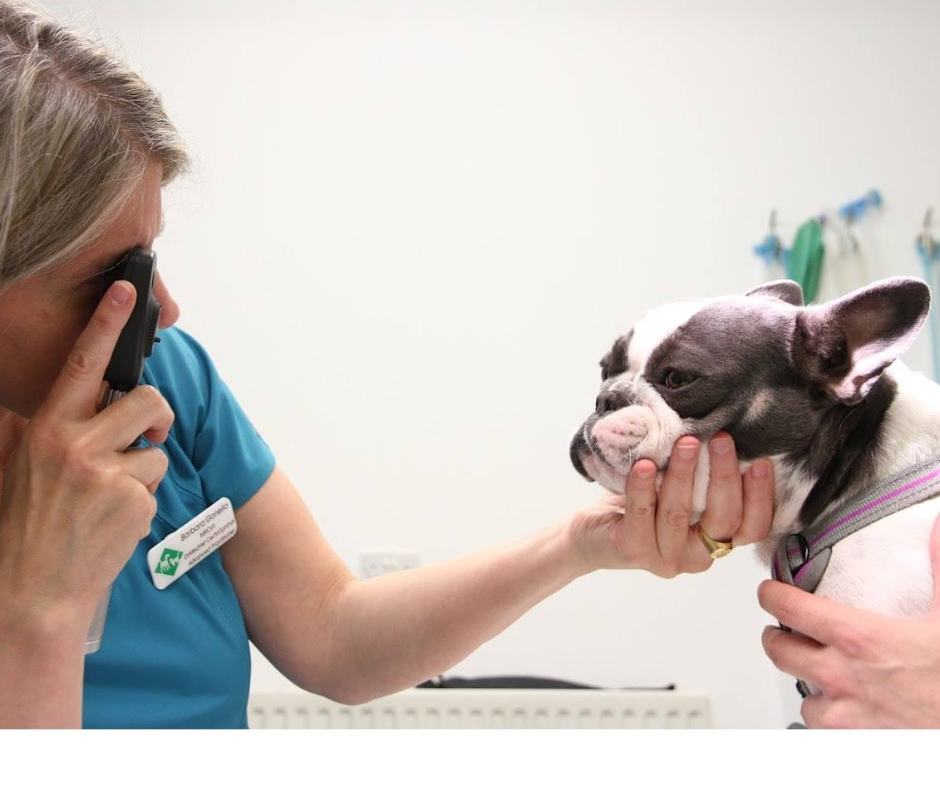Being a pet owner entails a significant responsibility. Many people often misconstrue typical pet emergencies, not seeking help until it is too late. Being informed and having a record of common situations that warrant a veterinarian’s intervention can contribute to your pet’s long-term well-being. Our 24 hour hospitals, Mead Veterinary Centre, Streatham Hill Veterinary Surgery and Elizabeth Street Veterinary Clinic, are here to help you if your pet faces any of the below emergency situations.
Bleeding
Many people mistakenly believe they can manage an animal’s first aid at home when profuse bleeding is involved. If an animal is bleeding whether it be light or heavy we recommend contacting us for an emergency appointment. The severity of the injury might be obscured by the fur or might require stitches to prevent infection. The wound could be deeper than it looks, or there may be undetected internal bleeding that requires surgery.
Choking and Breathing Difficulties
When an animal is struggling to breathe, waiting to see what happens can be detrimental, just like with humans. Never attempt to clear the airway yourself and be prepared to perform animal CPR. Take the pet to an emergency clinic even if CPR temporarily alleviates the breathing difficulty to ensure the animal’s safety. A vet is the most competent person to identify any internal damage that might have caused the respiratory problem.
Not Drinking Water
Pets typically drink regularly. If a pet hasn’t drunk anything in the last 24 hours despite having access to clean water, take it to a vet. A refusal to drink for over 24 hours is a signal of an emergency.
Difficulty in Urinating or Defecating
If the pet experiences discomfort while urinating or defecating or is unable to do either, it’s crucial to investigate. There could be a serious underlying issue that requires professional attention. Since animals rarely express pain, a chronic problem could develop into a life-threatening situation without your awareness. Is your cat not passing urine? Please refer to this article.
Unconsciousness
While it may seem evident, some pet owners may mistake their pet’s unconsciousness for sleep. If you can’t wake the animal, contact a vet immediately. The animal may have fainted, and a vet will need to assess the situation to identify the cause of the loss of consciousness.
Eye Injuries

Intense Vomiting/Diarrhoea
Waiting out severe vomiting or diarrhoea can lead to rapid dehydration and sometimes be fatal. It’s vital to identify why the animal is reacting this way. Bring the animal to the vet, try to recall what the animal has eaten recently and consider any potential poison exposure.
Ingestion of Poisonous Substances
Many items that are safe for humans can be toxic to animals, such as multivitamins, chocolate, pesticides, lilies, grapes among others. Your pet may willingly consume these items. Learn what substances are harmful to your pet and immediately contact us if you suspect your pet has ingested something toxic.
Seizures
If an animal has a seizure, immediate veterinary care is needed. Even staggering can indicate a brain issue that requires immediate attention. A vet can evaluate the situation and might need to conduct further tests to determine the best course of action.
Limping and Fractures
Allowing a pet to “heal” independently when displaying signs of leg pain can lead to unnecessary suffering in the future. Address these issues by taking the pet to the vet, aiding in a longer, healthier, and happier life.
Pain and Anxiety
Pets often don’t communicate their discomfort. If an animal shows signs of pain, it has likely reached a severe stage, and immediate veterinary attention is needed. Anxiety may also indicate pain or illness. If your normally friendly dog suddenly becomes irritable or unwelcoming, there might be a physical problem. Consult a vet immediately for an evaluation, noting any changes in behaviour and anxiety symptoms, as these will assist the vet’s diagnosis.
Heat Stroke
As awareness increases about animals left in cars, so does the understanding of heat stroke. If an animal exhibits signs of heat stroke, such as excessive panting, unusually coloured gums, dry tongue, staggering, stupor or seizures, bloody diarrhoea, or vomiting, immediate veterinary care is needed.
If in doubt, contact us!
At our around-the-clock care facilities Mead Veterinary Centre, Streatham Hill Veterinary Surgery, and Elizabeth Street Veterinary Clinic we strive to make sure your pet’s stay with us is as comfortable as possible if they face any emergency. Operating on a triage basis, we prioritise the most serious cases first. However, we always aim to minimise your waiting time as much as we can. Providing us with advance notice about your pet’s situation will assist us in reducing the waiting period.
Does your pet need immediate assistance? Contact us below:




